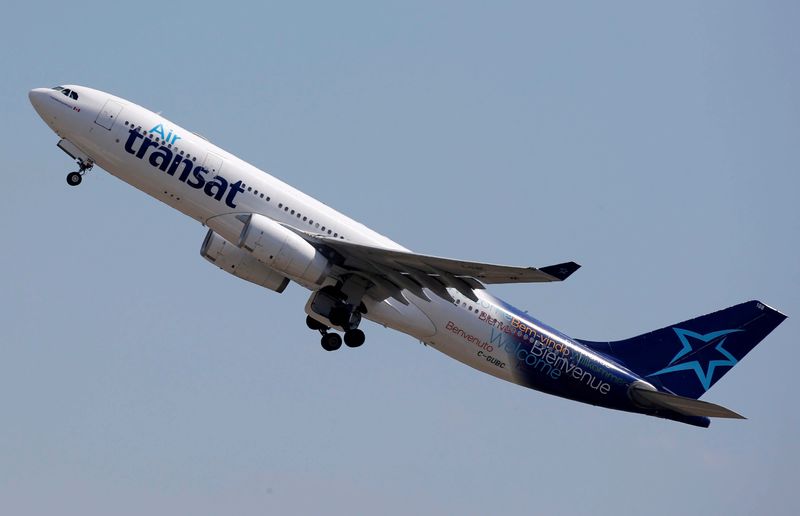Street Calls of the Week
By Allison Lampert and Shivansh Tiwary
(Reuters) -Air Transat flight attendants rejected a tentative agreement with the Canadian leisure carrier, their union said on Tuesday, raising fresh demands for higher pay and the threat of a strike at the end of the bustling holiday travel season.
The union representing 18,500 flight attendants in Canada said one of the main reasons for the deal's failure was that the raises failed to keep up with higher living costs.
Unions in aerospace and other sectors are making gains on wages amid a tight labor market and rising inflation that has eaten into pocketbooks.
Flight attendants in Canada and the U.S. are particularly trying to end the practice of not compensating them for time spent during boarding and waiting at the airport before and between flights.
Transat and the union representing its 2,100 cabin crew return to bargaining this week after 98% of voting members rejected the deal reached in December, said a news release from the Canadian Union of Public Employees (CUPE).
"Given members' particularly high dissatisfaction it is still possible that the union gives strike notice," the CUPE release said, confirming an earlier Reuters report which cited an internal notice to cabin crew.
Transat flight attendants in late November voted to authorize a mandate allowing them to strike with 72 hours' notice. The earliest possible strike could only take place on Friday, although notice has not yet been given.
"We are disappointed by this outcome, as we were confident that the tentative agreement would be accepted by the majority of our flight attendants," said Julie Lamontagne, a spokesperson for Transat in a release. "We are returning to the bargaining table, and our objective remains to find common ground as soon as possible."
Last month, flight attendants at Southwest Airlines (NYSE:LUV) voted against a five-year contract that would have made them the highest-paid cabin crew in the industry, but did not include compensation for boarding time.
The Transat agreement offered pay increases of about 18% over five years, three sources familiar with the matter said.
And according to cabin crew briefing material seen by Reuters, the now-rejected contract would have paid the flight attendants Canada’s hourly minimum federal wage of C$16.65 for an hour of what is currently unpaid time, ahead of continental flights.
At present, most flight attendants receive payment solely for the duration when the aircraft is in motion. Delta Air Lines (NYSE:DAL) is the only U.S. carrier that pays its flight attendants during boarding time.
